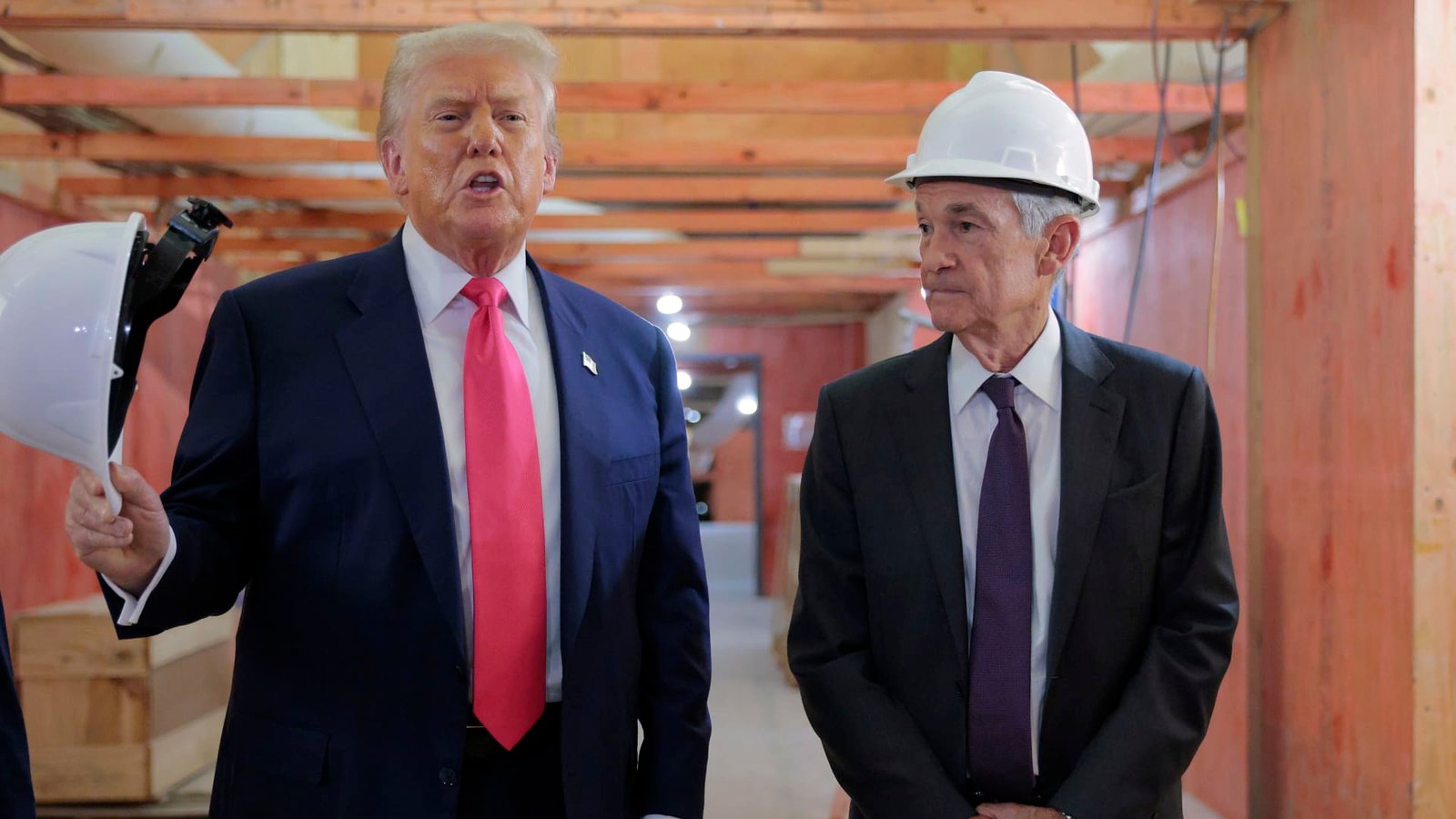Trump is feeling pretty good about his chances of getting the Federal Reserve to cut interest rates. Real good.
The president told reporters Friday he’s confident the Fed will start lowering rates after his sit-down with Chair Jerome Powell the day before. And he’s reading between the lines of what Powell told him.
“I think we had a very good meeting on interest rates. And [Powell] said to me … very strongly, the country is doing well,” Trump said. “I got that to mean that I think he’s going to start recommending lower rates.”
That’s quite the interpretation. Powell and his Fed colleagues have been anything but eager to cut rates lately. They’re waiting to see what Trump’s tariffs do to inflation. Powell’s actually argued the opposite – that the economy is strong enough to handle higher rates while they watch the data.
But the White House isn’t letting up the pressure. Budget director Russell Vought was making the rounds Friday, keeping the heat on the Fed’s renovation project controversy while pushing for rate cuts.
“There’s a whole host of issues with regard to the Fed, and we want to make sure that those questions get answered over time,” Vought said on “Squawk Box.” Then he added: “This is not a pressure campaign on the Fed chairman.”
Right. Sure it’s not.
Vought echoed Trump’s desire for the Fed to ease up on monetary policy. The goal? Help the economy and specifically the housing market, where high rates have been crushing affordability.
The tone following Thursday’s meeting was definitely warmer than what we’ve seen before. For months – really years – Trump and Powell have been at odds. But both sides called the tour positive.
A Fed official said Friday they were “honored” to welcome Trump and other Republican officials. “We are grateful for the President’s encouragement to complete this important project,” the spokesman said.
Still, don’t expect the White House to back down entirely. Vought made it clear they’re moving forward with Treasury Secretary Scott Bessent’s plan to review “the entire” Federal Reserve.
The Fed has given them plenty of ammunition. Beyond the building renovation costs and rate policy, there’s the operational deficit problem. The Fed usually sends its investment earnings back to Treasury. Not lately. High interest rates mean they’re paying more on bank reserves than they’re making on investments. That shortfall hit nearly $80 billion in 2024.
“We’re going to continue to articulate our policy concerns with regard to the Fed’s management,” Vought said. “You don’t get to just be at the Fed and not have any criticism directed your way. That is not something that exists in the American political system.”
Trump struck a similar confident tone Thursday. “I believe that the chairman is going to do the right thing,” he said. “I mean, it may be a little too late, as the expression goes, but I believe he’s going to do the right thing.”
The president has dialed back his previous threats about firing Powell. He said Thursday he doesn’t think Powell needs to resign.
But Trump’s optimism about rate cuts might be premature. Futures markets see virtually zero chance of a cut when the Fed meets next week. September’s a different story. And traders are pricing in the possibility of another cut before year-end.
Whether Powell interprets “the country is doing well” the same way Trump does? That remains to be seen.



